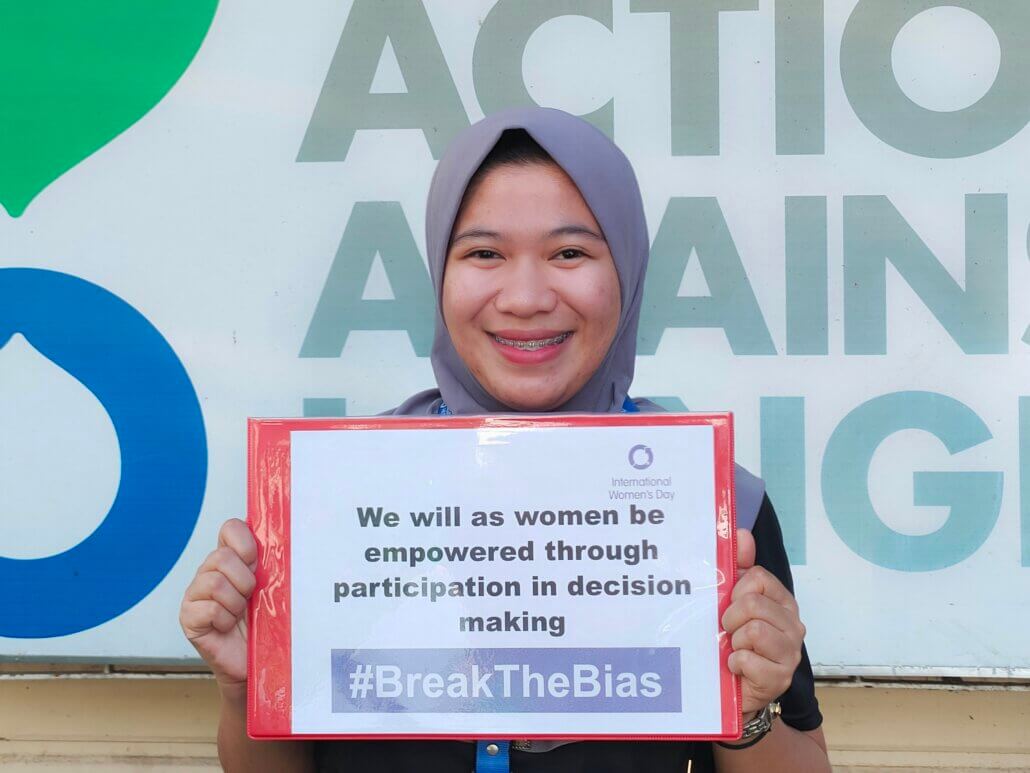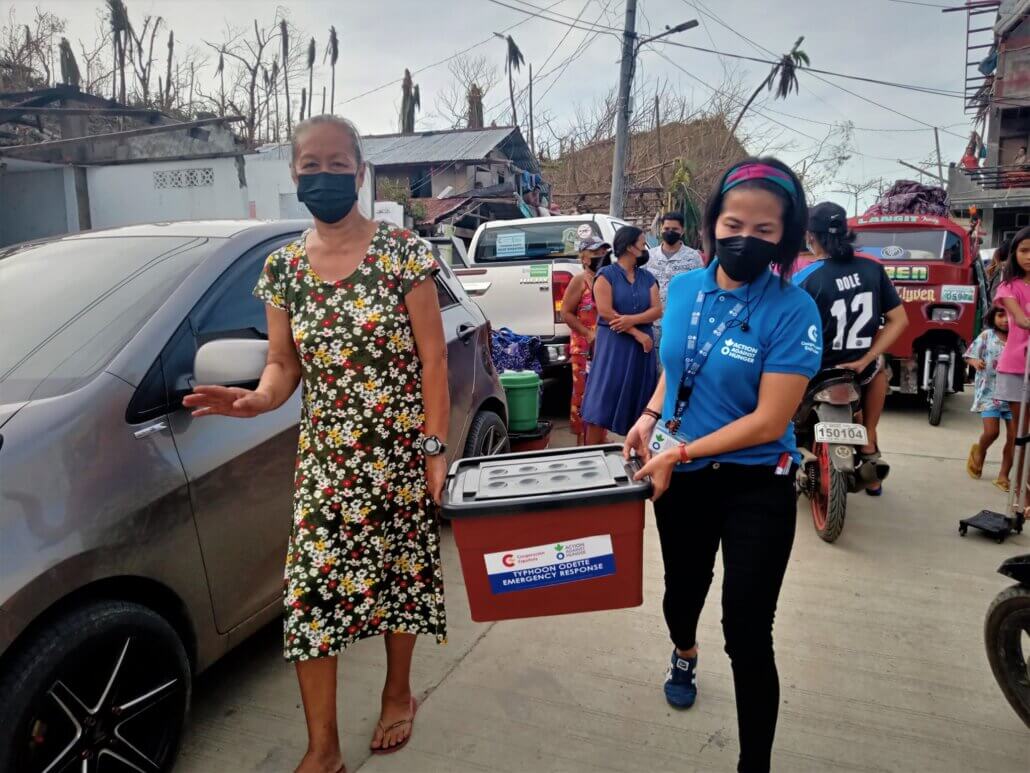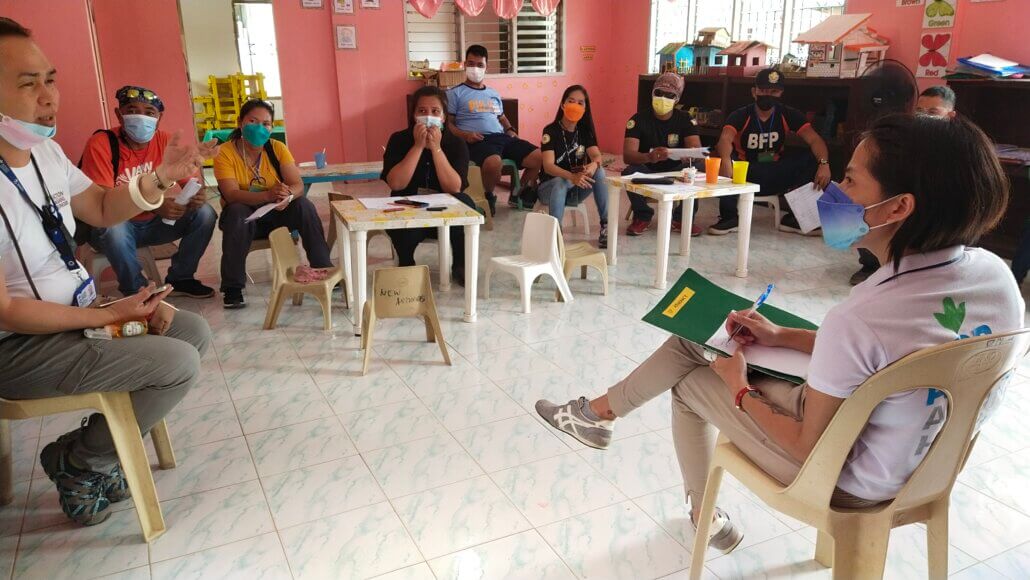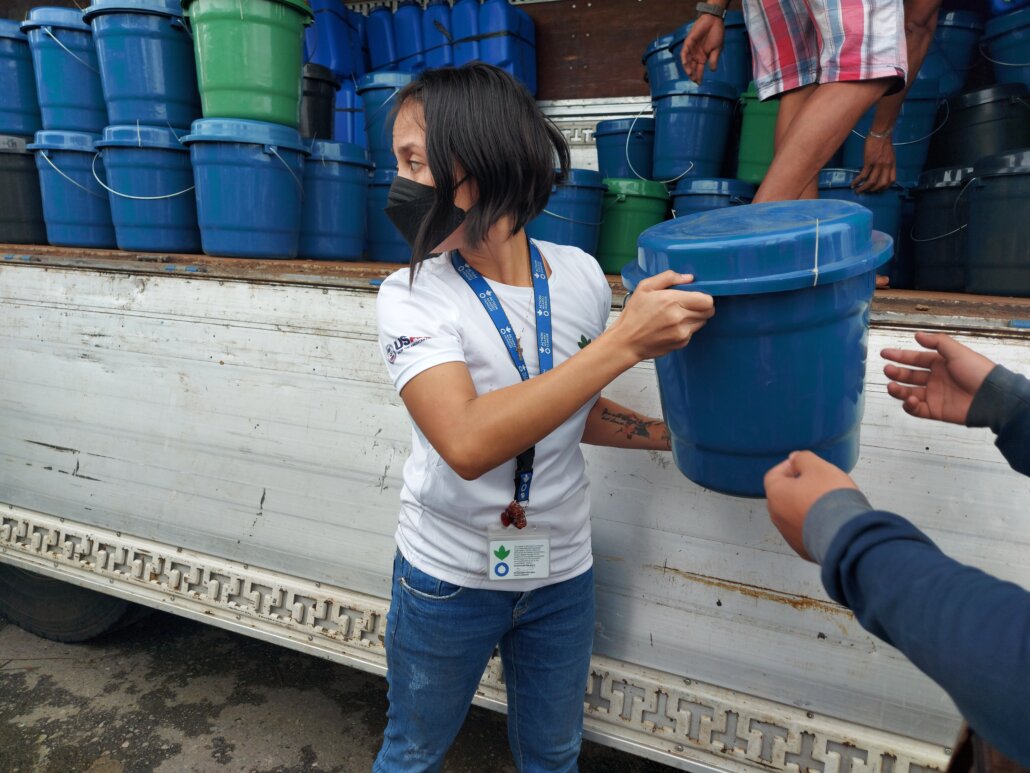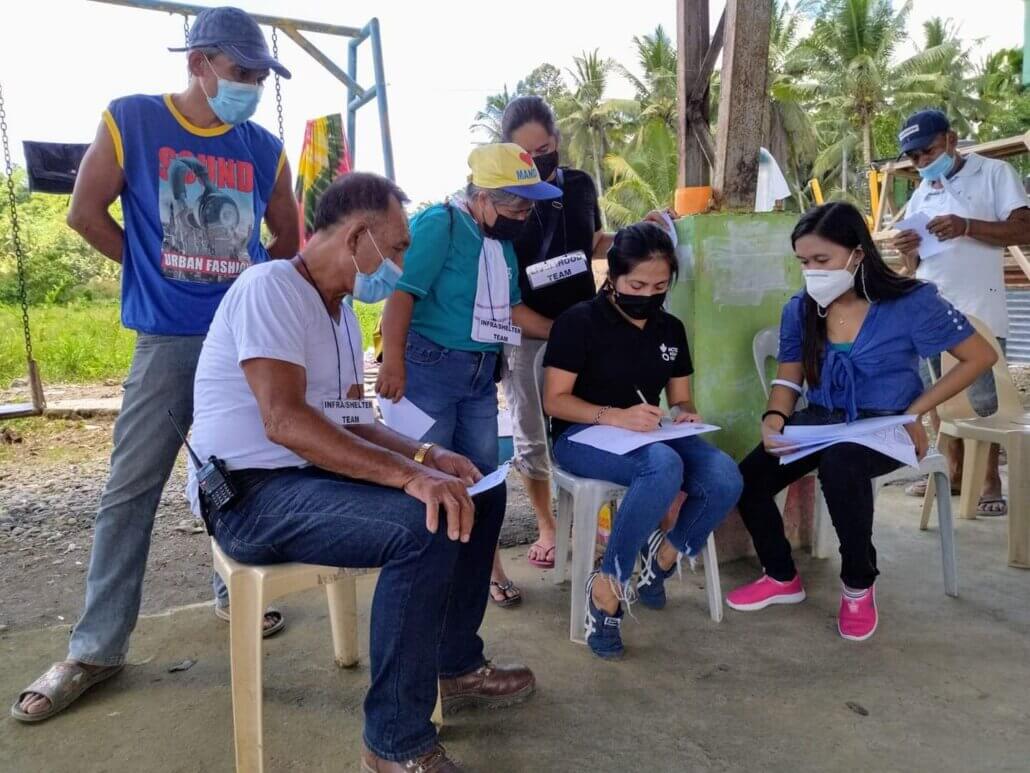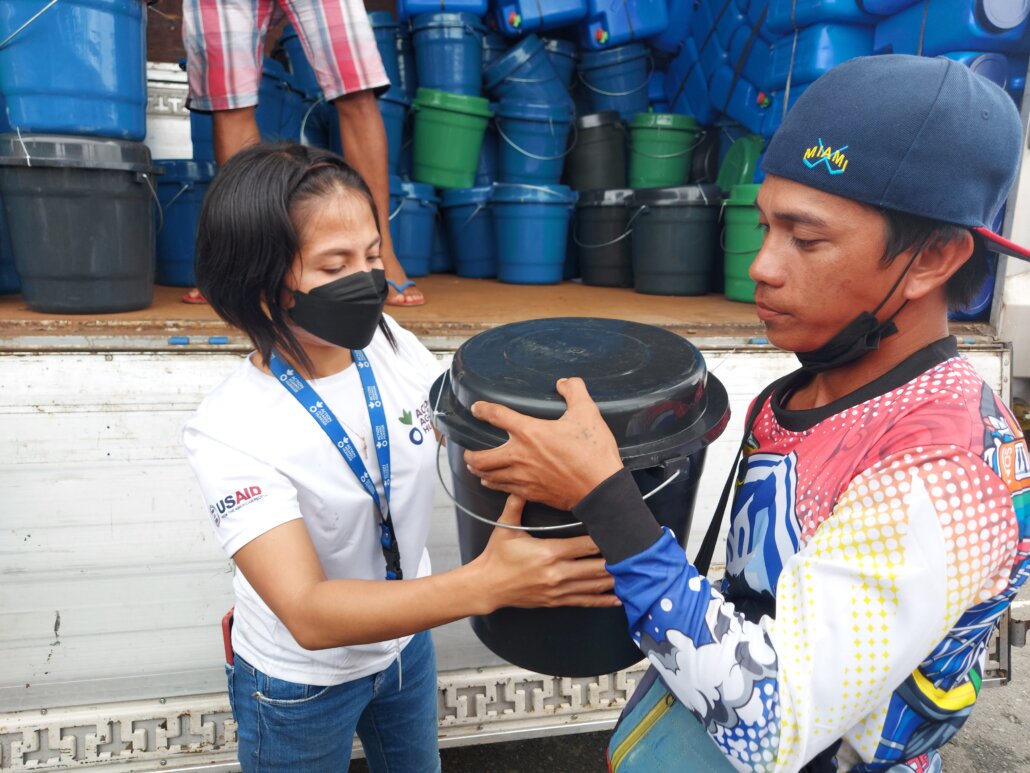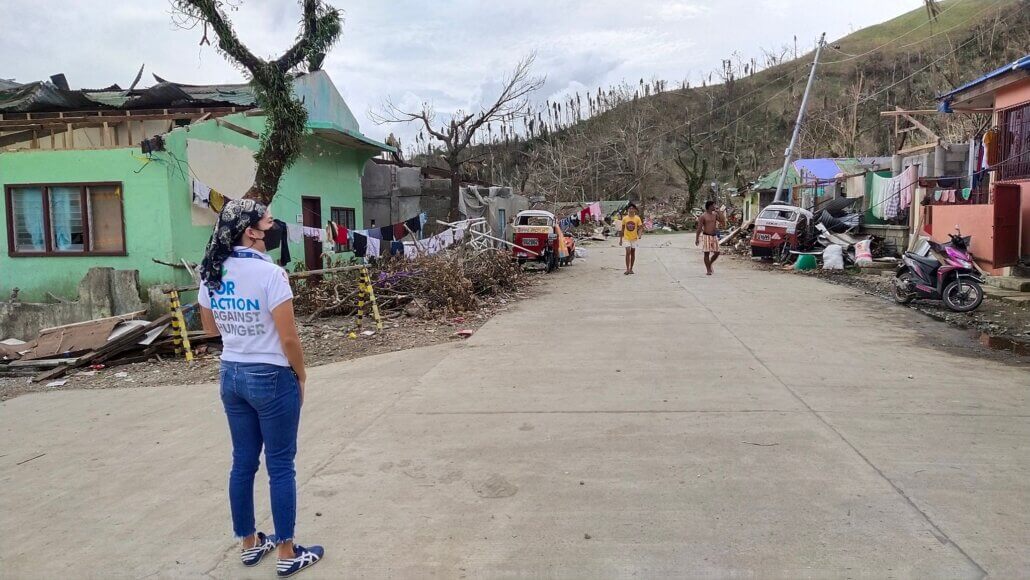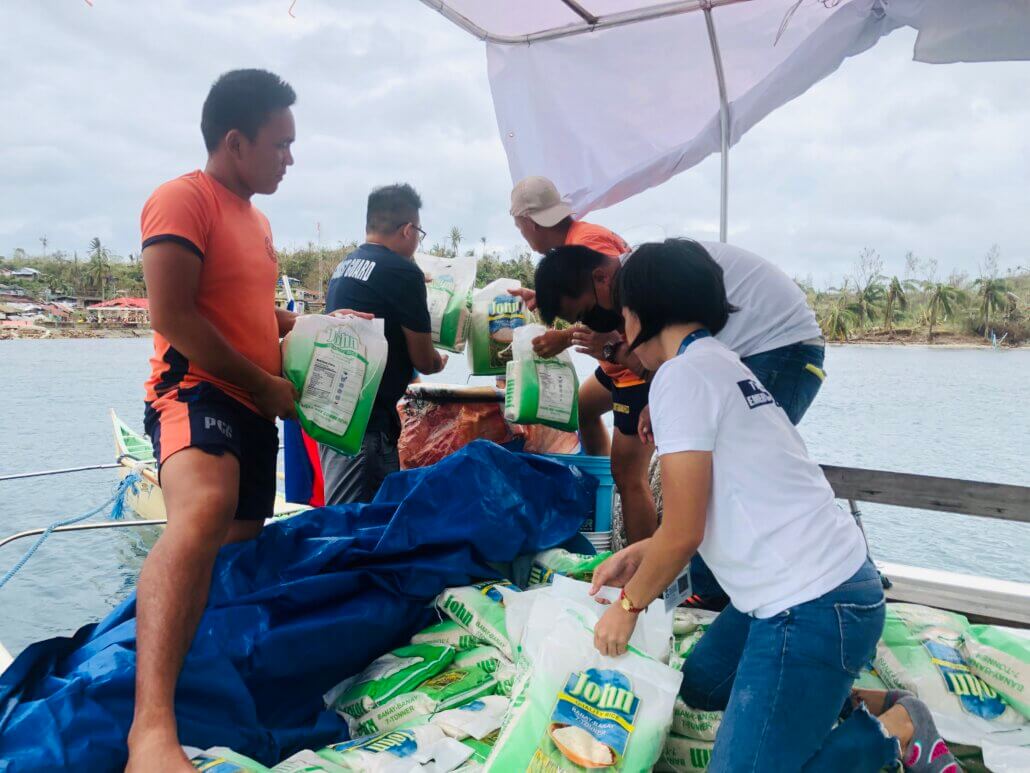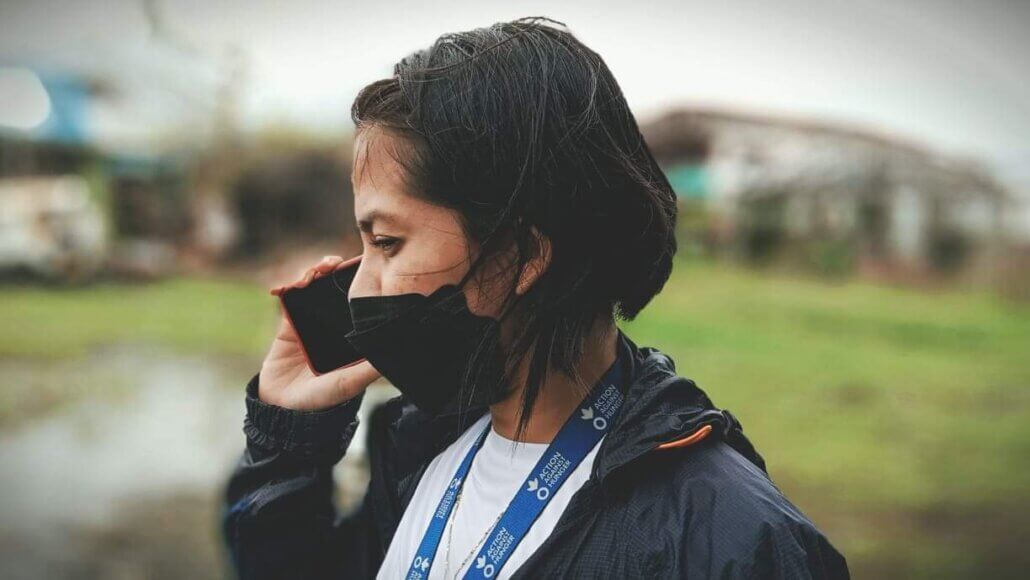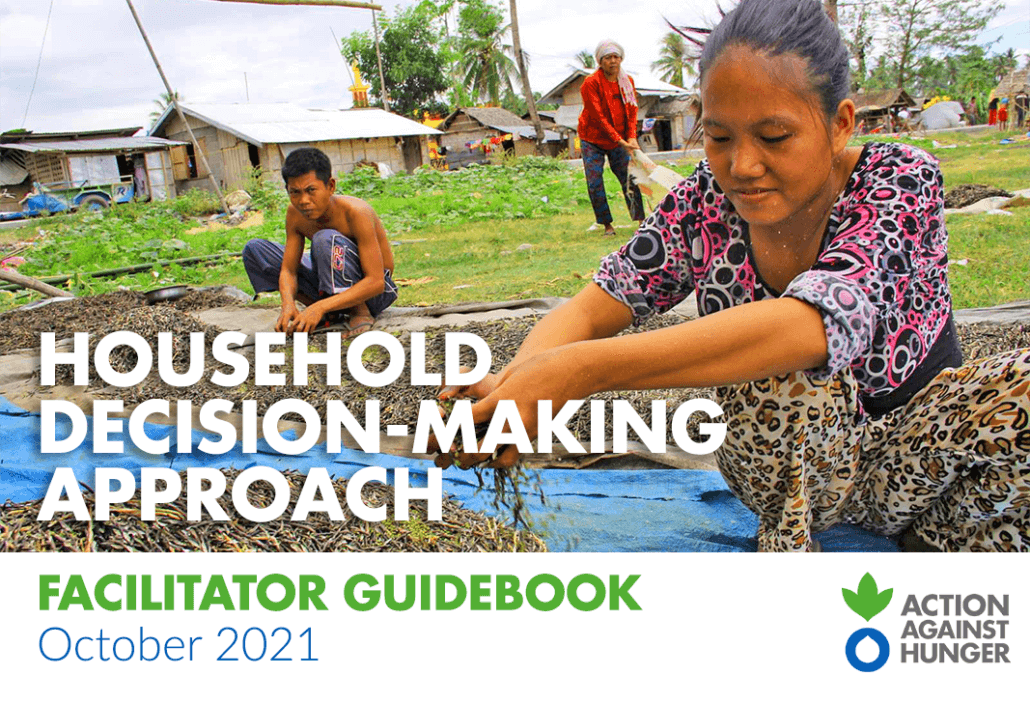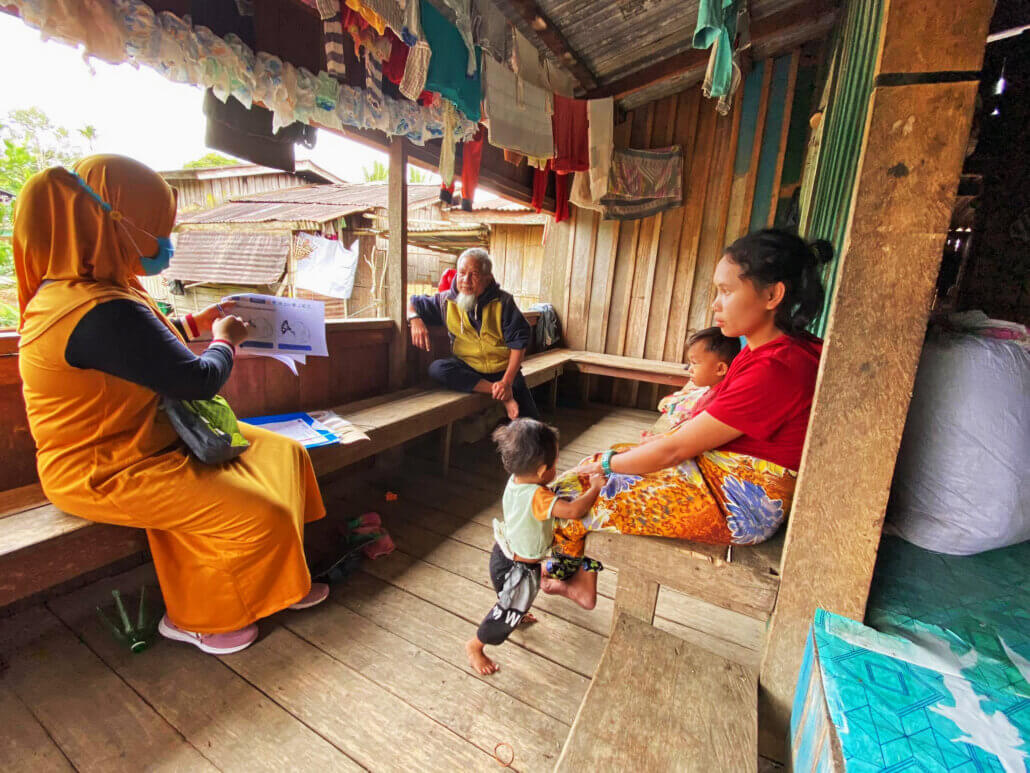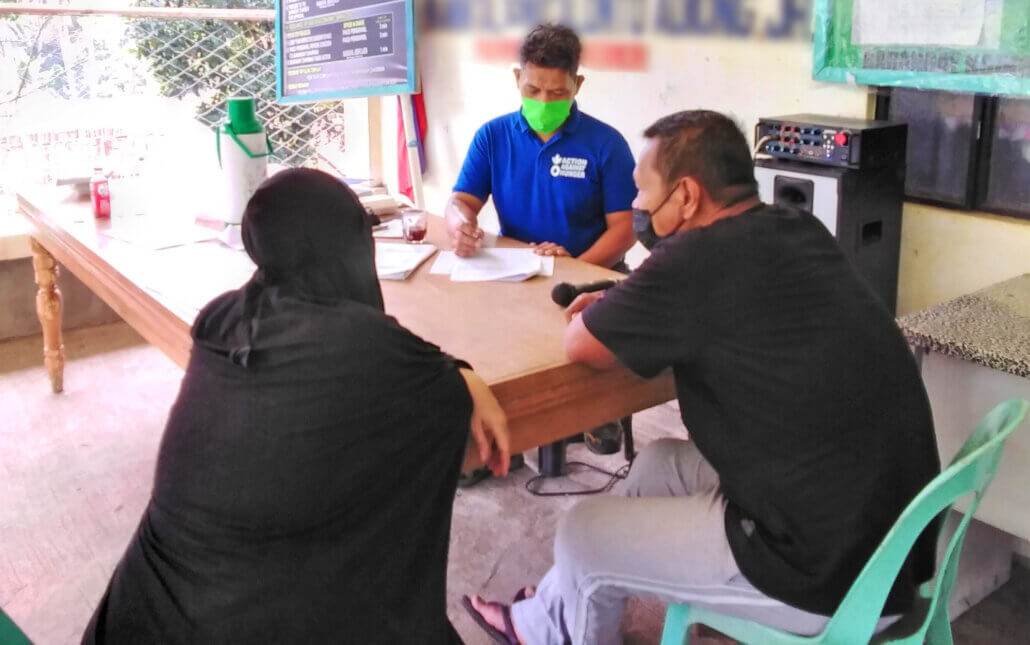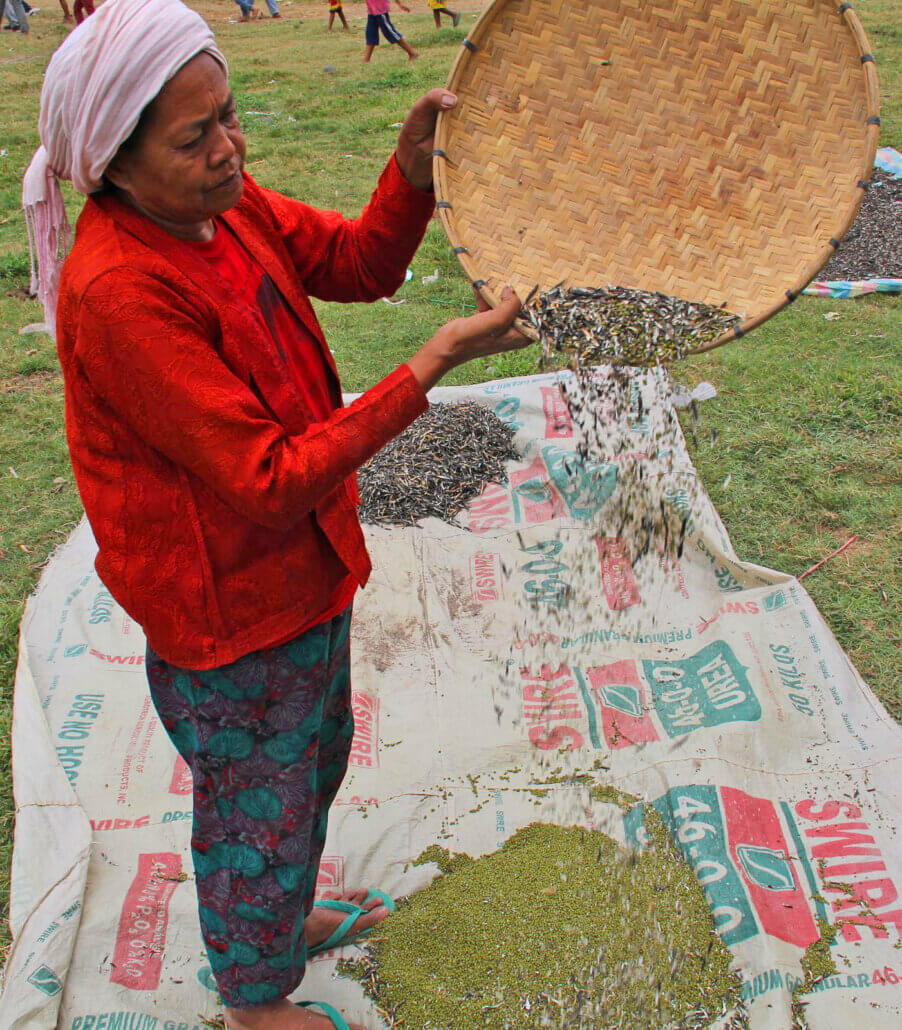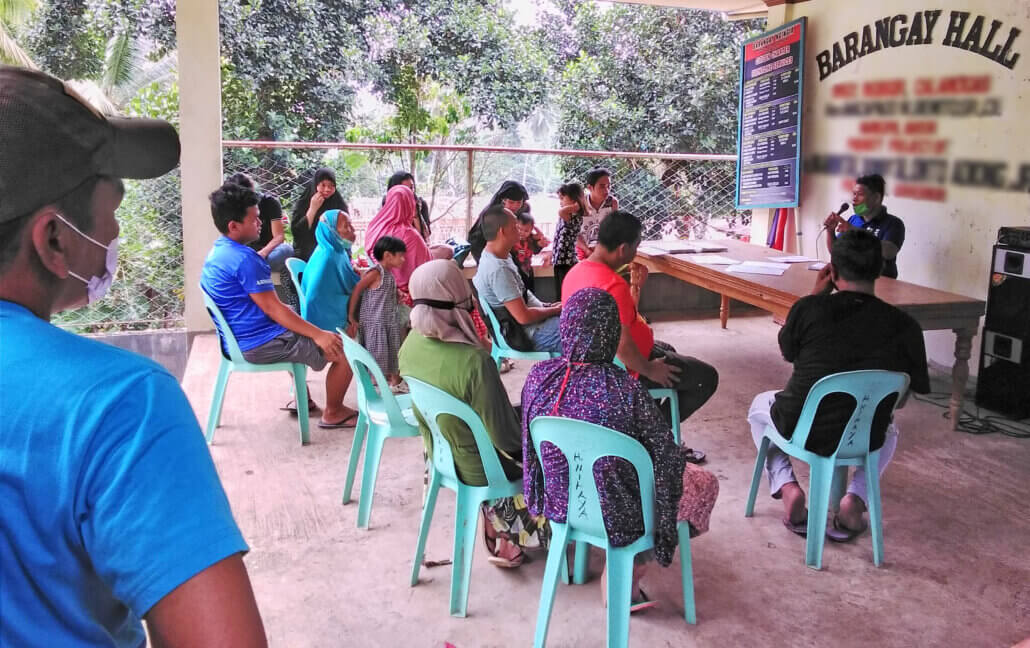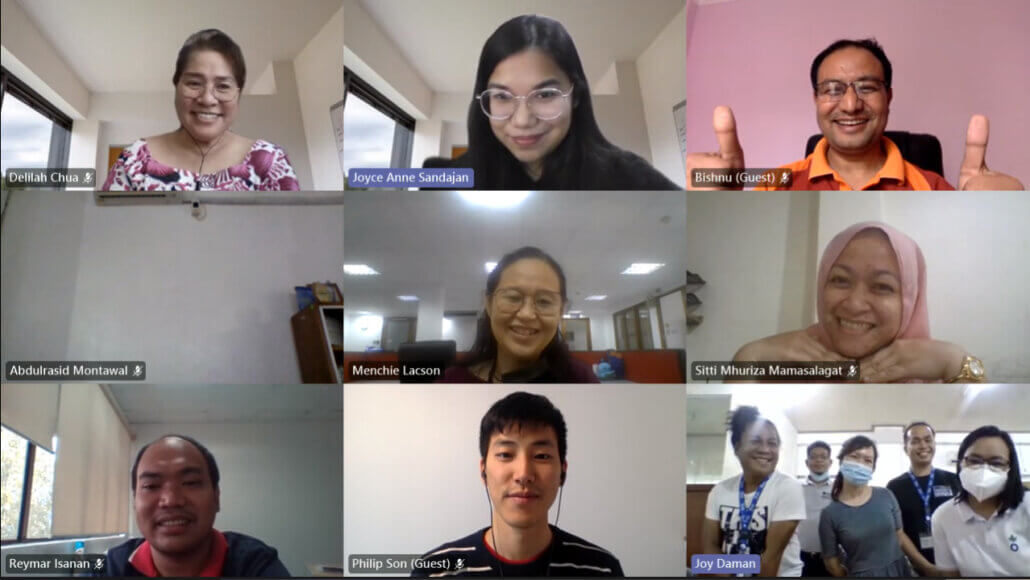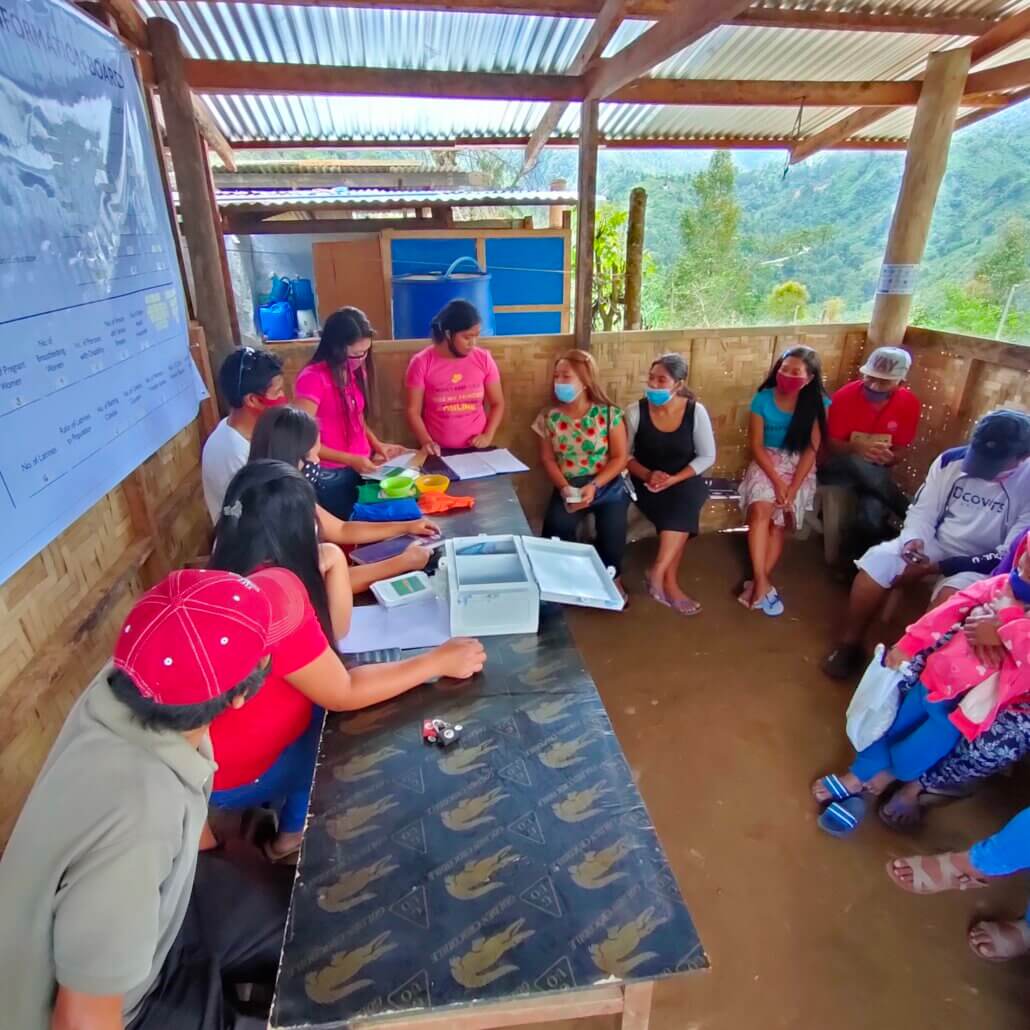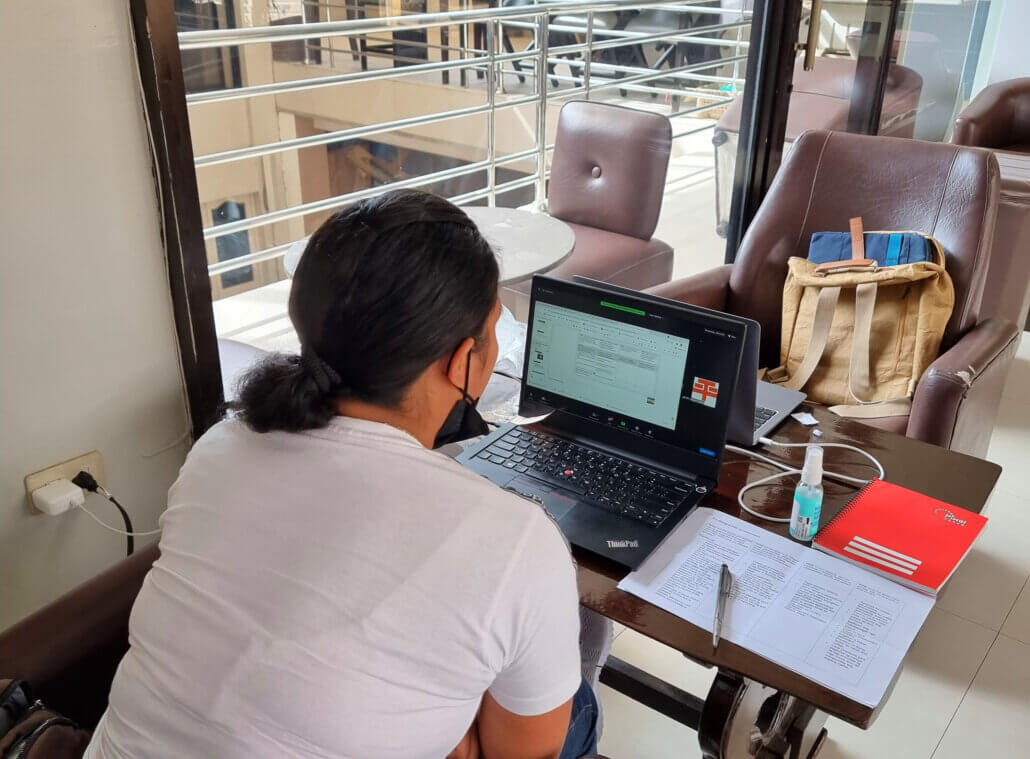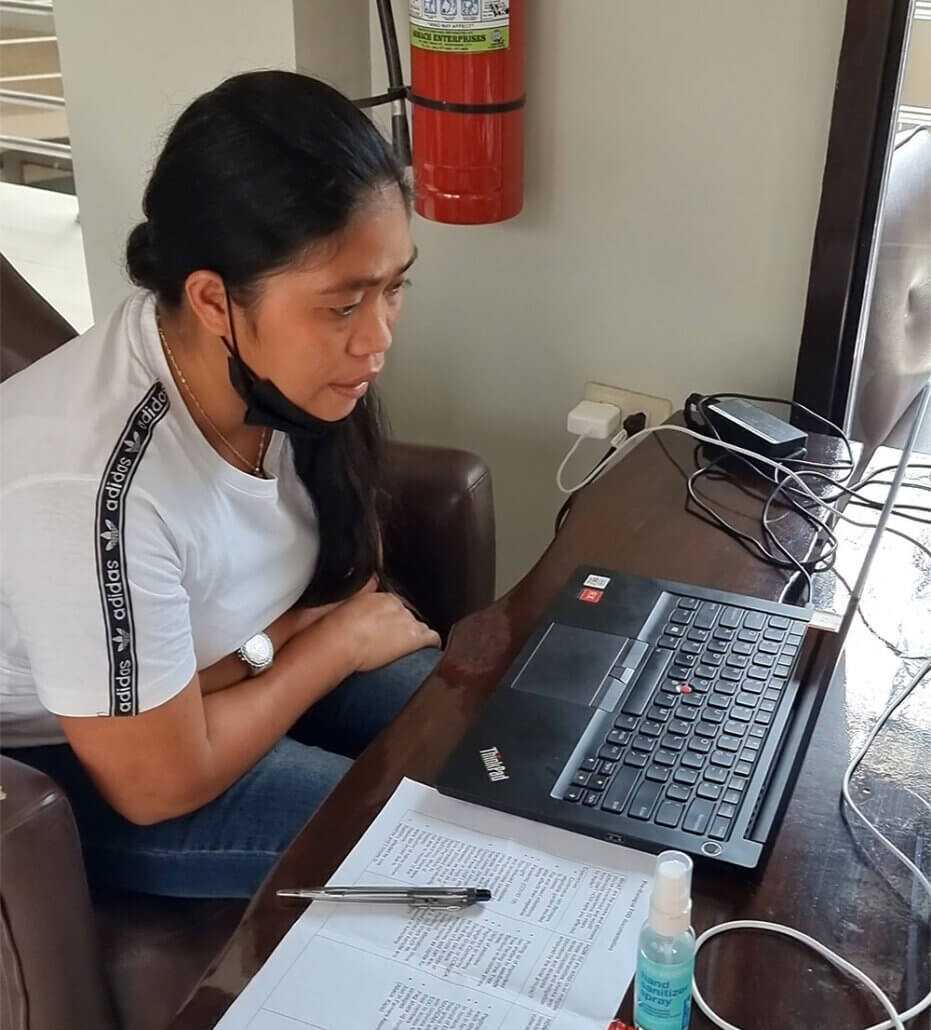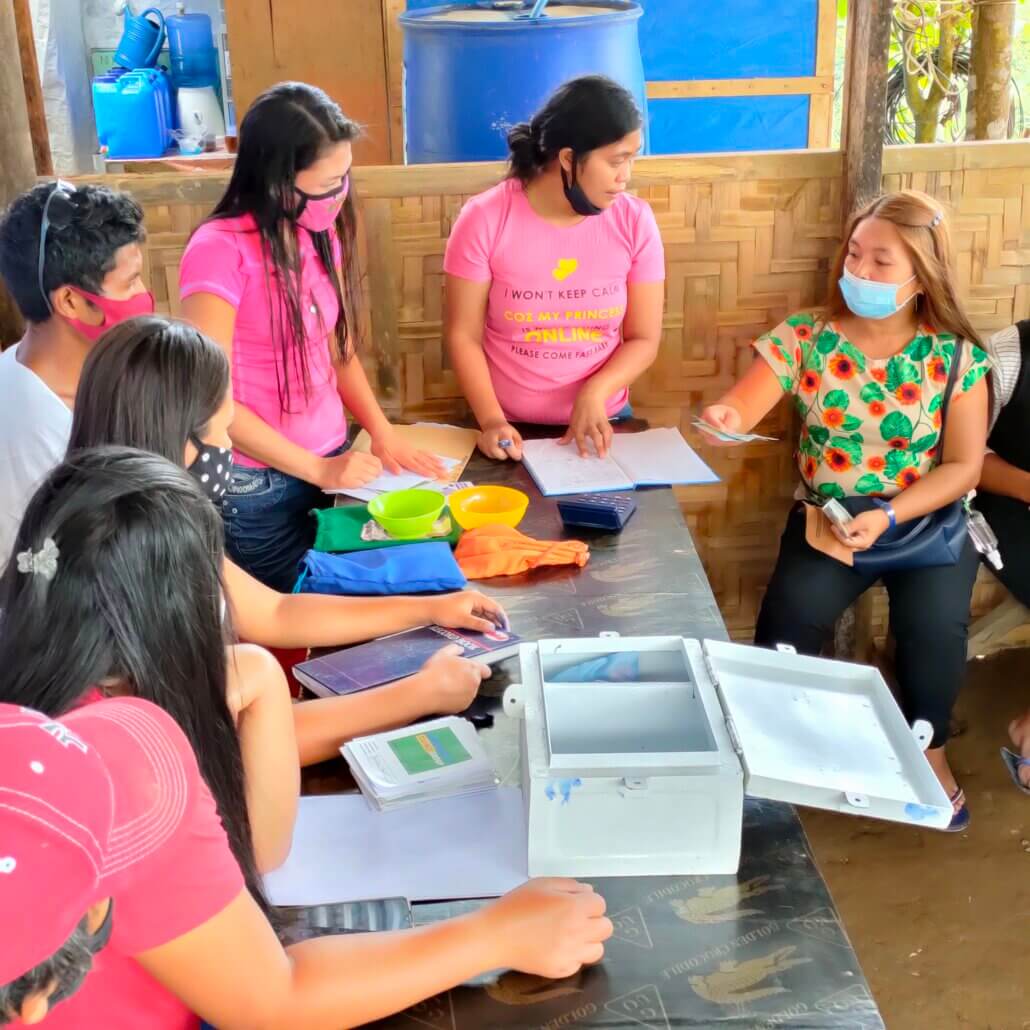Real Life Heroes: Juhaina Ebus
Juhaina Ebus, our Protection Assistant for the REACH Project, chooses to #BreaktheBias through empowering women in vulnerable communities. She does this by engaging them to participate in active decision-making. Her passion is advocating for people’s rights and giving help to those who need it the most. This is one of the many reasons why she’s certainly one of our Real Life Heroes.
Get to know Juhaina and her inspiring take on being a humanitarian worker:
What is your role in Action Against Hunger?
I conduct assessments on the protection needs or gaps in the communities I serve and advocate for their rights. I’ve also been raising awareness on how to live a safe and healthy life during this COVID-19 pandemic while providing emergency humanitarian assistance when needed.
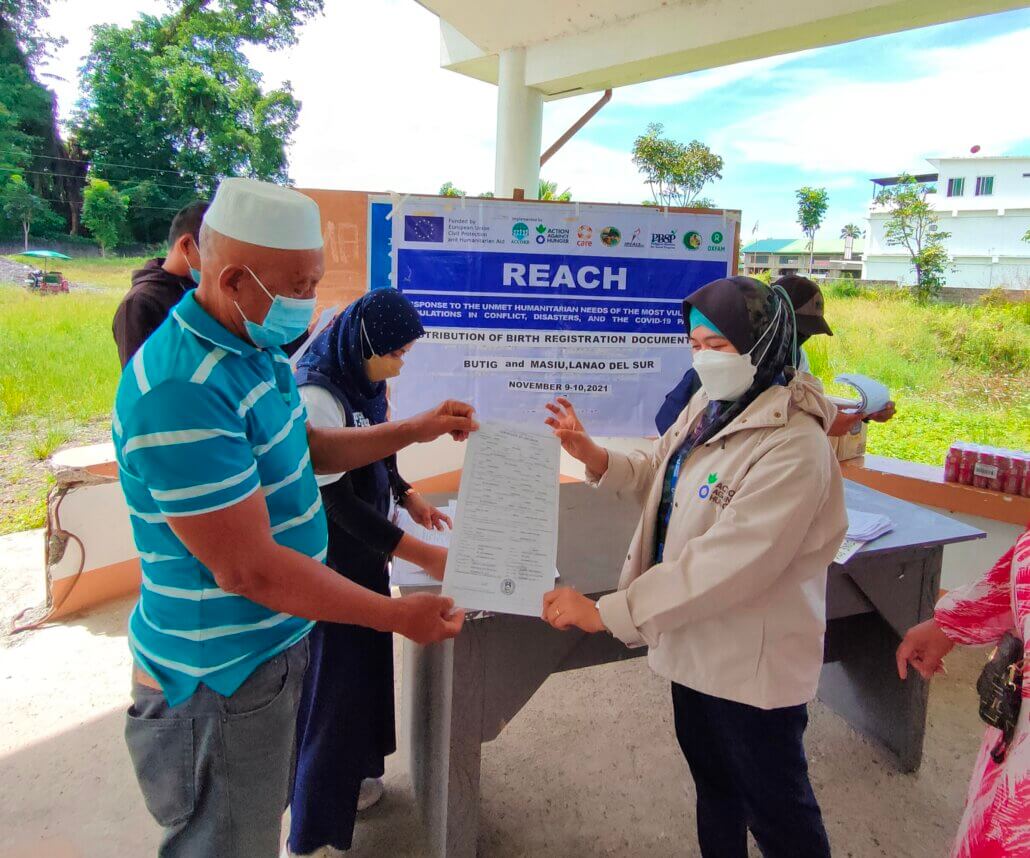
Juhaina in one of the Legal Mission activities of REACH in Lanao del Sur. (Photo courtesy of Juhaina Ebus)
How long have you been working as a humanitarian worker?
I have been in this industry for more than 3 years. My first job with Action against Hunger was as a Psychosocial Support Assistant under the Marawi Siege Emergency Response project funded by the USAID’s Office of U.S. Foreign Disaster Assistance (OFDA) in Cotabato City back in 2018.
From then on, I have responded to different emergency interventions such as Maguindanao Armed Conflict Response in 2019 as WASH Assistant; COVID-19 Response in Kidapawan in 2020 as a Hygiene Promotion Assistant. Since last year, I’ve been working as the Protection Assistant for the ‘Response to the Unmet Humanitarian Needs of the Most Vulnerable Populations in Conflict, Disasters, and the COVID-19 Pandemic’ project or REACH.
What motivates you to become a humanitarian worker?
Seeing smiles on their faces, having to hear different stories, and helping without expecting anything in return are some of the reasons why I find my work with the vulnerable population to be fulfilling.
My main motivation has always been my passion-driven attitude towards them—to contribute good lasting changes in terms of their behavioral, spiritual, & emotional aspect in looking at life. I also learned to be more patient and understanding of the fact that each of us has our own capacities.
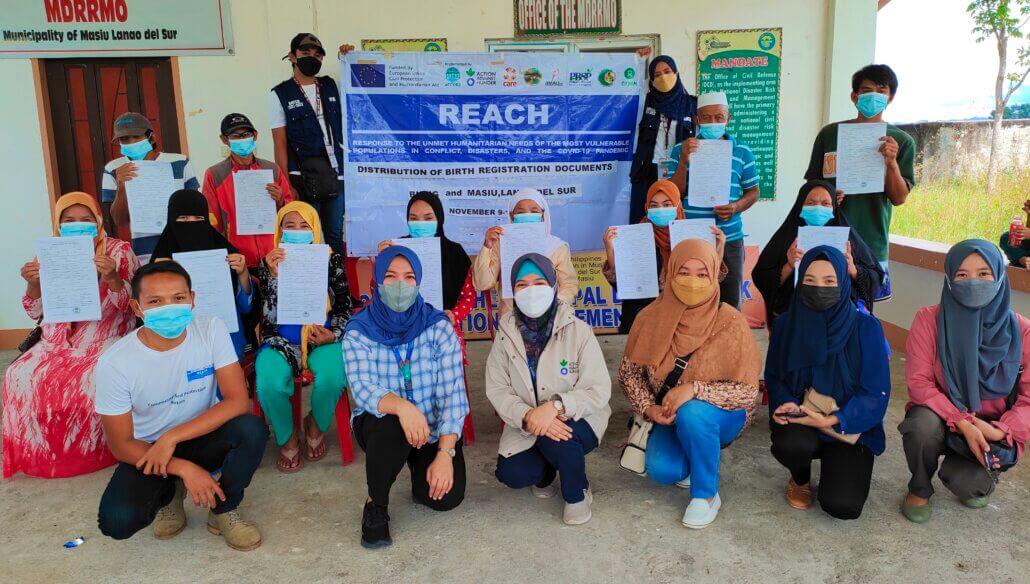
Photo courtesy of Juhaina Ebus
Why are you making this sacrifice?
I pursued this path because it is my passion. As a registered social worker, I made sure to expose myself to the realities on the ground and further improve my skills depending on the evolving needs of the community. Life is never simple but helping improve the lives of others day by day is a work that I passionately enjoy.
What have been the challenges to your work?
Being away from my family is challenging but I always remind myself that sometimes independence means pursuing your passion by helping those in need and gradually contributing to making the world a better place.
What motivates you to keep doing your work even with these challenges?
To be able to really feel and see the lasting change on the overall social development of the beneficiaries and the underserved communities.
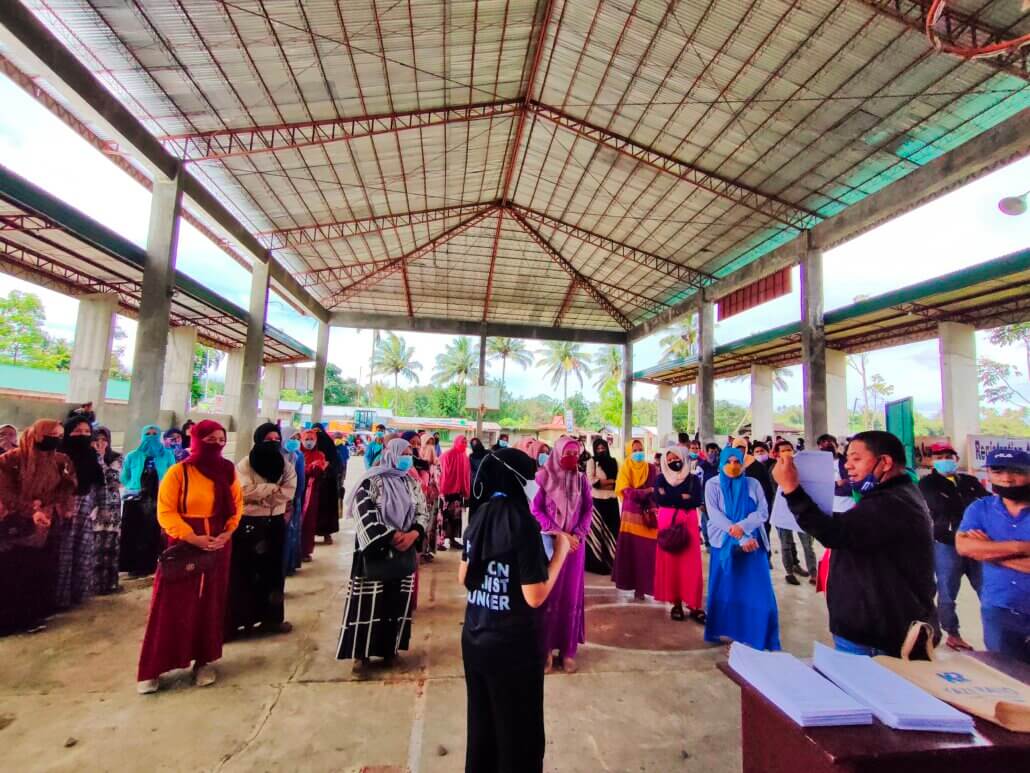
In photo: Juhaina (wearing black) conducts an orientation for the participants of the legal mission activity in Lanao del Sur. (Photo courtesy of Juhaina Ebus)
What are you most proud of?
Being a part of Action Against Hunger is a blessing because I can really say that there is an improvement in the fight against hunger & malnutrition within vulnerable communities.
How do you #BreaktheBias in your line of work and/or on a daily basis?
I will equally treat everyone with respect regardless of gender preference and will always be open to working collaboratively without prejudice.
Imagine a gender-equal world. What do you see?
A gender-equal world is a world wherein everyone is treated fairly, regardless of gender or religion; a gender-equal world equates to a healthy society.
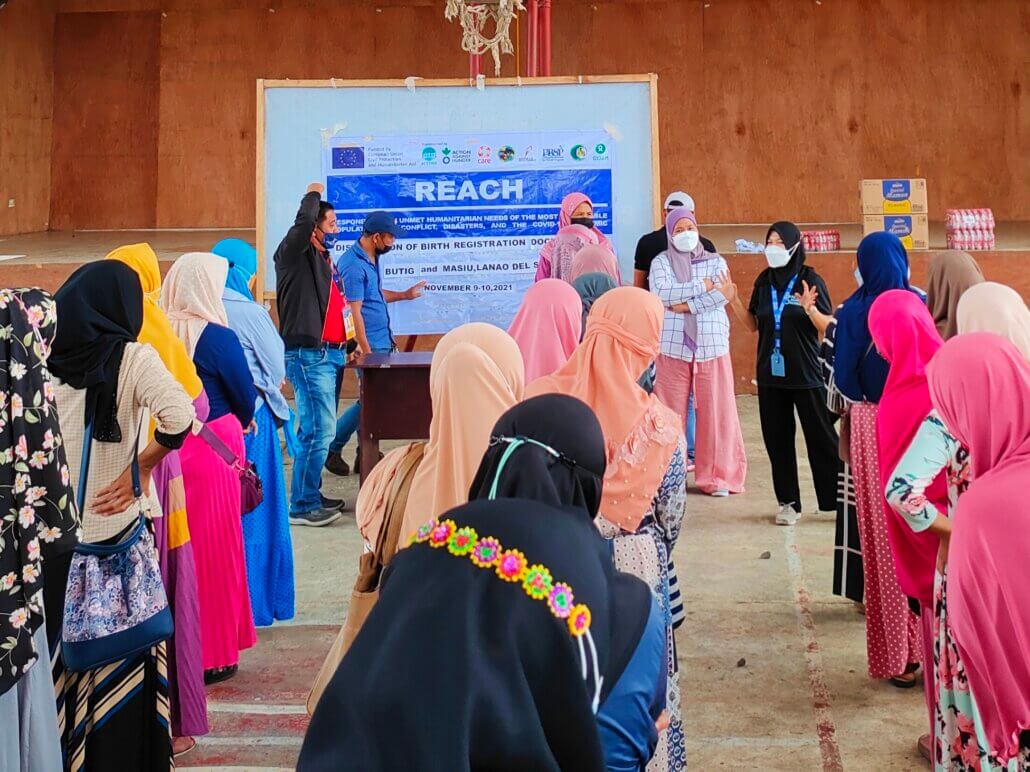
In photo: Juhaina (wearing black) conducts an orientation for the participants of the legal mission activity in Lanao del Sur. (Photo courtesy of Juhaina Ebus)
The ‘Response to the Unmet Humanitarian Needs of the Most Vulnerable Populations in Mindanao and the Visayas Affected by Conflict, Disasters, and the COVID-19 Pandemic’ (REACH) Project is funded by the European Civil Protection and Humanitarian Aid (ECHO) and is implemented by ACCORD Incorporated, Action Against Hunger Philippines, CARE Philippines, Community Organizers Multiversity, Initiatives for Dialogue and Empowerment through Alternative Legal Services (IDEALS) Inc., Philippine Business for Social Progress (PBSP), United Youth of the Philippines-Women and Oxfam Pilipinas.


